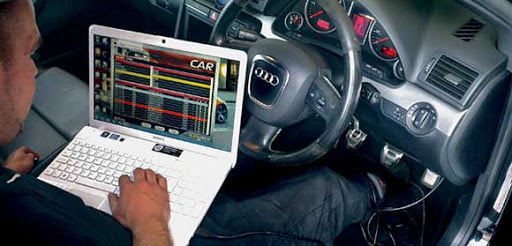As automobile enthusiasts, you must’ve heard about the terms like engine remapping and tuning to improve the performance of your vehicle. There are tons of benefits to tuning your engine to add a certain power (hp) and Torque (Nm) to your car’s stats. The performance and acceleration are also enhanced substantially. People do it to get the maximum out of their vehicles’ engines. However, there might well be some downsides to it as well. If you have remapped your engine, is your warranty still valid? We shall discuss all these aspects of the principle, working, advantages and disadvantages of engine remapping.
Also read: Types of turbo chargers – VGT, Twin-Scroll, Twin-Turbo, Sequential Turbo and e-Turbo!

What is engine calibration?
Every car manufacturer has calibrated the engines according to certain standards and to strike a balance between various aspects of an internal combustion engine and the regulations related to performance, fuel economy and vehicular emissions. Almost all these factors can be controlled by certain parameters. We can easily understand this by example. To burn a certain amount of fuel inside the engine cylinder, a certain amount of air is required. This is predefined for a perfect balance between performance, mileage and emissions. The engine can produce more power and improve performance by injecting more fuel into the cylinder. But it will also increase emissions. Similarly, to optimize the fuel economy, the automakers have to compromise a bit on performance. So, there is always a balance to be achieved to take care of all the aspects of a car. That is how the car manufacturers calibrate the engines from the factory and it is advised to keep that configuration intact. If you want to still improve the performance parameters of your vehicle, it must be done by professionals and it requires a lot of expertise because all these factors have to be taken into account.
Also read: Types of clutches – Wet, dry, single and multi-plate – Pros and Cons!
Which parameters are changed by engine remapping and tuning?
The power output produced by any vehicle depends on a ton of factors. Especially in modern cars, all the components and parameters of a car are monitored and calibrated by electronic components like sensors and actuators. All this data is constantly stored and visualized by the ECU (Engine Control Unit). Every piece of information related to engine parameters is passed through this unit and the communication between various components also takes place here. This includes all the variables like Oxygen intake measurement, tyre/vehicle speed data, ignition timing, valves opening and closing timings, duration of intake and exhaust valve opening, throttle response, amount of fuel injected into the cylinder, amount of emissions produced by the engine, peak power and torque data and much more. Additionally, the safety measures in a car also communicate with each other through this data, for example, ABS, EBD, Airbags, Roll-over Mitigation, Hill-Hold Function, Traction Control and much more.
Also read: Gasoline Direct Injection Technology!
Therefore, by injecting more air and fuel into the cylinder, more power can be produced. This is very much possible, however, if the mechanics doing the remapping are not careful or experienced professionals, it could lead to other problems. For example, a vehicle may start to emit higher pollution levels than the legal limit which will cause problems with the emissions laws. The fuel economy might take a huge hit and the mileage will be reduced dramatically. If any components fail due to increased performance levels of the engine, the OEM will disqualify the warranty of the car and might refuse to service the vehicle. If they do, they might charge a high fee for that. There will be no responsibility on the carmaker if the components fail due to increased loads. This could happen because every component is designed optimally to handle a certain load and a certain operation parameter. If these loads, temperatures and pressures are increased inside the engine, it might cause components to malfunction or break down completely.
Also read: All you need to know about 4WD and AWD – What is a differential?
Should you remap your engine?
If you remap or retune all these parameters, there will definitely be a boost in the performance variables of your car. However, it does require a lot of expertise and not everyone can do it. A lot of mechanics might claim that they can do it. But remember, if something happens to any component of the vehicle, will he take responsibility for it? Because after getting your car remapped from outside, if you were to go to the carmaker to set your engine to the default factory settings, they will charge a lot and still won’t promise the proper working of all the mechanical and electronic components. We would suggest, you buy a car that suits all your requirements in the regular configuration straight out of the showroom. If you still want to go for remapping, make sure to go to a highly skilled and experienced mechanic and be prepared to say goodbye to your warranty.
Also read: Types of suspension systems – MacPherson Strut, Double Wishbone, Leaf Springs with applications!
Image Source: Protune ECU Remaping and Chip Tuning!

